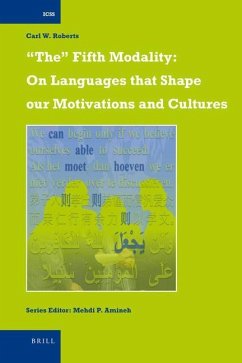This is a book about how people understand each other. Like Simmela (TM)s writings and works written by Foucault and Goffman toward the ends of their careers, this book depicts interactions as behavioral forms. Its novelty is that it grounds these forms in linguistic structure, particularly in the ubiquitous presence of modality in discourse within all mass societies. Its concluding argument is that all persons, situations, and cultures have mutual significance in accordance with four fundamental modal forms: ability (most common in the United States), necessity (most common in the socialist countries of Western Europe and Scandinavia), obligation (most common in ancient Chinese and Indic societies), and permission (most common in the Islamic world).
Hinweis: Dieser Artikel kann nur an eine deutsche Lieferadresse ausgeliefert werden.
Hinweis: Dieser Artikel kann nur an eine deutsche Lieferadresse ausgeliefert werden.








